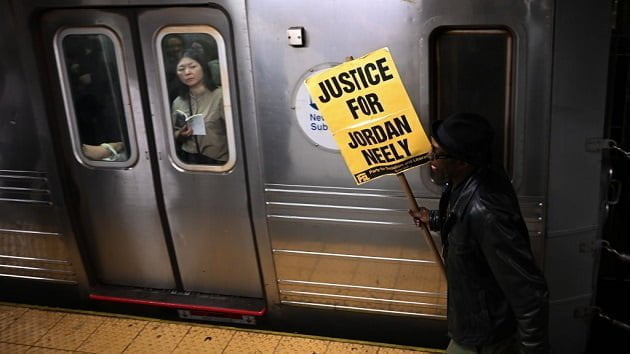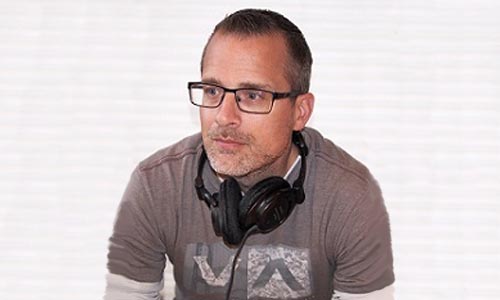(NEW YORK) — Daniel Penny turned himself in to New York City police on Friday to face criminal charges in connection with the chokehold death of Jordan Neely aboard a subway train.
Penny was seen walking in to the New York City Police Department’s 5th Precinct in Chinatown shortly after 8 a.m. ET. He did not address the media outside, though his lawyer, Tom Kenniff, spoke briefly to reporters.
“Turned himself in here voluntarily and with the sort of dignity and integrity that is characteristic of his dignity of service to this grateful nation,” Kenniff said. “The case will now go to court we expect an arraignment this afternoon. The process will unfold from there.”
Penny’s surrender came one day after the Manhattan District Attorney’s Office confirmed that he would be arrested on a charge of second-degree manslaughter.
Neely died following a chokehold on May 1. Video showed Penny, a U.S. Marine veteran, putting Neely in a chokehold following outbursts from Neely on an F train.
Attorneys for Penny said in a statement Thursday night that they are confident that “once all the facts and circumstances surrounding this tragic incident are brought to bear, Mr. Penny will be fully absolved of any wrongdoing.”
“When Mr. Penny, a decorated Marine veteran, stepped in to protect himself and his fellow New Yorkers, his well-being was not assured. He risked his own life and safety, for the good of his fellow passengers,” said the statement from the law firm of Raiser and Kenniff. “The unfortunate result was the unintended and unforeseen death of Mr. Neely.”
Neely was homeless at the time of his death. Some witnesses reportedly told police that Neely was yelling and harassing passengers on the train, authorities said.
Police sources told ABC News that Penny was not specifically being threatened by Neely when he intervened and that Neely had not become violent and had not been threatening anyone in particular.
In an earlier statement, Penny’s attorneys offered “condolences to those close to Mr. Neely” and claimed “Mr. Neely began aggressively threatening Daniel,” and that the Marine veteran and others “acted to protect themselves.”
“Mr. Neely had a documented history of violent and erratic behavior, the apparent result of ongoing and untreated mental illness,” said the statement from the law firm of Raiser and Kenniff. “When Mr. Neely began aggressively threatening Daniel Penny and the other passengers, Daniel, with the help of others, acted to protect themselves, until help arrived. Daniel never intended to harm Mr. Neely and could not have foreseen his untimely death.”
In footage of the incident, Penny can be seen holding Neely in a chokehold for nearly 3 minutes, as another man held down Neely’s body.
The Neely family attorneys criticized Penny’s response.
“The truth is, he knew nothing about Jordan’s history when he intentionally wrapped his arms around Jordan’s neck, and squeezed and kept squeezing,” the Neely family attorneys said in a statement.
“Daniel Penny’s press release is not an apology nor an expression of regret. It is a character assassination, and a clear example of why he believed he was entitled to take Jordan’s life,” the statement from attorneys Donte Mills and Lennon Edwards continued.
Neely’s death following the chokehold has been ruled a homicide by the city’s medical examiner’s office.
Penny, 24, was questioned by detectives and released, according to police. He told police he was not trying to kill Neely.
According to police sources, Neely had a documented mental health history. Neely had been previously arrested for several incidents on the subway, though it’s unclear how many, if any, led to convictions.
The Manhattan DA’s office spent the weekend and much of this week interviewing and going over the accounts of witnesses who were on the train, as well as reviewing multiple videos of the incident. Prosecutors also consulted with the medical examiner’s office and detectives, and reviewed statements Penny made to detectives on the night of the incident.
The district attorney’s office decided to move forward with charges without first going to a grand jury.
A grand jury will still hear evidence in the case, which will occur in the week following his arraignment.
The maximum penalty for second-degree manslaughter is 15 years.
ABC News’ Morgan Winsor contributed to this report.
Copyright © 2023, ABC Audio. All rights reserved.











